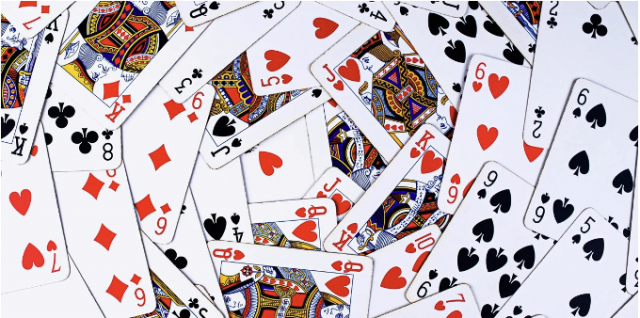Poker’s strategic depth and complexity have inspired game designers across various genres. The need for players to read opponents, manage resources, and make calculated decisions has found its way into many modern video games. Strategy games, in particular, have borrowed heavily from poker’s mechanics, incorporating elements of bluffing, risk management, and psychological warfare.
Games like “Hearthstone” and “Magic: The Gathering” exhibit poker-like qualities where players must anticipate their opponent’s moves and strategically manage their hand of cards. These games require a deep understanding of probability, just like poker, and reward players who can outthink their opponents.
The Competitive Spirit of Poker
Poker has long been associated with high-stakes competition, where the best players compete for substantial prizes. This competitive spirit has seamlessly transitioned into the world of eSports. Much like poker tournaments, eSports events attract large audiences and offer significant prize pools. The competitive nature of poker has helped to elevate eSports to a level where it is now considered a legitimate sporting competition.
Many eSports tournaments have adopted structures similar to poker tournaments, featuring elimination rounds, buy-ins, and tiered prize distributions. This format adds a layer of excitement and suspense, mirroring the thrilling progression of poker tournaments where players advance through various stages to reach the final table.
Psychological Elements
One of the most fascinating aspects of poker is the psychological element. Players must maintain a strong mental game, controlling their emotions and staying focused under pressure. This psychological resilience is also crucial in competitive video gaming and eSports. The ability to remain calm and make strategic decisions during high-stress situations is a shared skill between poker players and professional gamers.
The concept of poker coaching has extended into the realm of eSports, with professional gamers seeking guidance from coaches to improve their mental game and strategic approach. This cross-pollination of training techniques highlights the influence poker has had on how competitive gaming is approached and prepared for.
Community and Culture
Shared Spaces and Events
Poker has always fostered a strong sense of community, with players gathering in poker rooms, casinos, and at tournaments to share their passion for the game. This sense of community is mirrored in modern gaming culture, where players connect through online platforms, attend gaming conventions, and participate in community-driven events. The social aspect of poker has undoubtedly influenced the way gaming communities form and interact.
Online Platforms
Online poker sites have paved the way for multiplayer gaming platforms, demonstrating how virtual spaces can successfully host competitive gameplay. These platforms have evolved to include comprehensive features such as player rankings, leaderboards, and forums, which are now standard in many online games. This evolution can be seen in the success of multiplayer online battle arenas (MOBAs) and first-person shooters (FPS), where community interaction is a key component.
Poker Site Reviews
The popularity of online poker has also given rise to numerous poker site reviews, providing players with insights into the best platforms to play on. This practice has influenced other gaming sectors, where review sites and forums help gamers choose the best platforms and games to invest their time and money in. By examining poker site reviews, players can make informed decisions, a concept that has translated into the broader gaming culture where informed choices enhance the gaming experience.
Cross-Over Games
Poker has directly influenced the development of several video games that incorporate poker mechanics. Titles such as “Red Dead Redemption” and “Far Cry 3” feature poker mini-games, allowing players to engage in virtual poker sessions as part of the broader game narrative. These inclusions highlight the cultural significance of poker and its role in enhancing the gaming experience.
Beyond mini-games, there are entire video games dedicated to poker, such as “Poker Night at the Inventory” and “Prominence Poker.” These games capture the essence of poker, blending it with unique storylines and characters, thus broadening the appeal of poker to a wider audience.
The Future of Poker and Gaming
As technology continues to advance, the integration of poker into modern gaming is set to evolve further. Virtual reality (VR) and augmented reality (AR) are poised to offer new and immersive ways to play poker, blending traditional gameplay with cutting-edge technology. These innovations will likely influence other gaming genres, pushing the boundaries of how games are designed and experienced. The line between traditional poker and digital gaming will continue to blur, with hybrid games that combine elements of both worlds becoming more prevalent. These games will offer unique experiences that appeal to both poker enthusiasts and gamers, fostering a new era of interactive entertainment.
Conclusion
Poker’s influence on modern gaming culture is profound and far-reaching. Its strategic depth, competitive spirit, and psychological complexity have shaped various aspects of the gaming industry, from game design to eSports. As a poker expert at WorldPokerDeals.com, I’ve seen how poker’s principles have been adopted and adapted by other gaming genres, enriching the overall gaming experience. By understanding and appreciating poker’s contributions, we can gain a deeper insight into the evolving landscape of modern gaming.
For more insights into how poker continues to shape the gaming world, and to read comprehensive poker site reviews, visit WorldPokerDeals.com. Whether you’re a poker player looking to explore new platforms or a gamer interested in the intersection of poker and video games, our resources provide valuable information to enhance your gaming journey.
By Chris Bates








